What is Action Profit in Hand2Note?
Imagine you play at the tables and someone tells you the exact profit of your every action, regardless of the hand's outcome. Hand2Note’s Action Profit feature brings you closer to that dream goal.
Table of Contents:
How does Action Profit boost your win rate?
Are my continuation bets profitable?
Are my continuation bluff bets profitable?
Compare profits between alternative actions
How is it that slowplaying works better? I didn't expect that!
What is Action Profit?
Action Profit is the amount of profit that a player earns from a specific action like calling, raising, betting, etc.
For example, the pot is 10, you bet 5 and everyone folds. The profit of your bet is 10.
Another example, the pot is 10, you bet 5, another player raises, and you fold. In this case, your bet profit is negative, equaling -5.
How does Action Profit boost your win rate?
Action profit is like your poker cheat sheet; it shows you where you can tweak your game to take advantage of others.
The main idea is that playing an optimal strategy, also known as a GTO (Game Theory Optimal) strategy, isn't always the most profitable way.
Instead, you should aim to exploit your opponents by playing an unbalanced but exploitative strategy. It works as long as your opponents don't react appropriately to those unbalanced exploits in your game.
In this article, I'll use a continuation bet as an example. I'll show you that while continuation bets are among the easiest moves in poker, it can still be challenging to get the most profit out of them.
Are my continuation bets profitable?
1. Open the Reports tab.
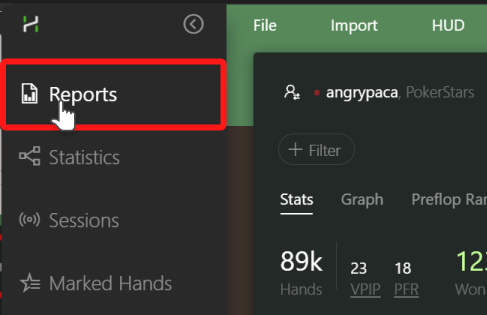
2. Click the “+Filter” button and select the Continuation Bet Flop filter.
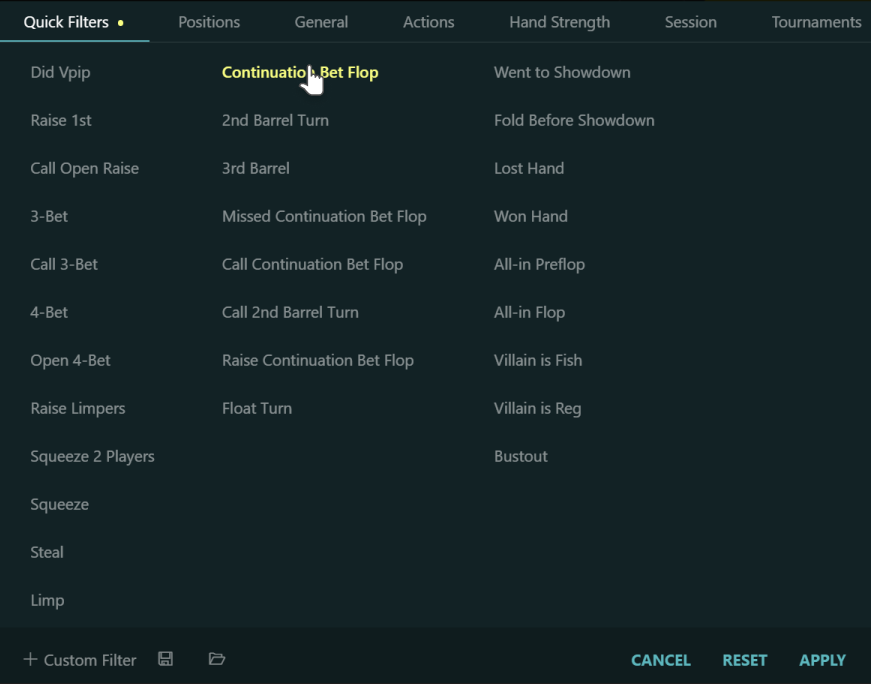
3. The report shows up.
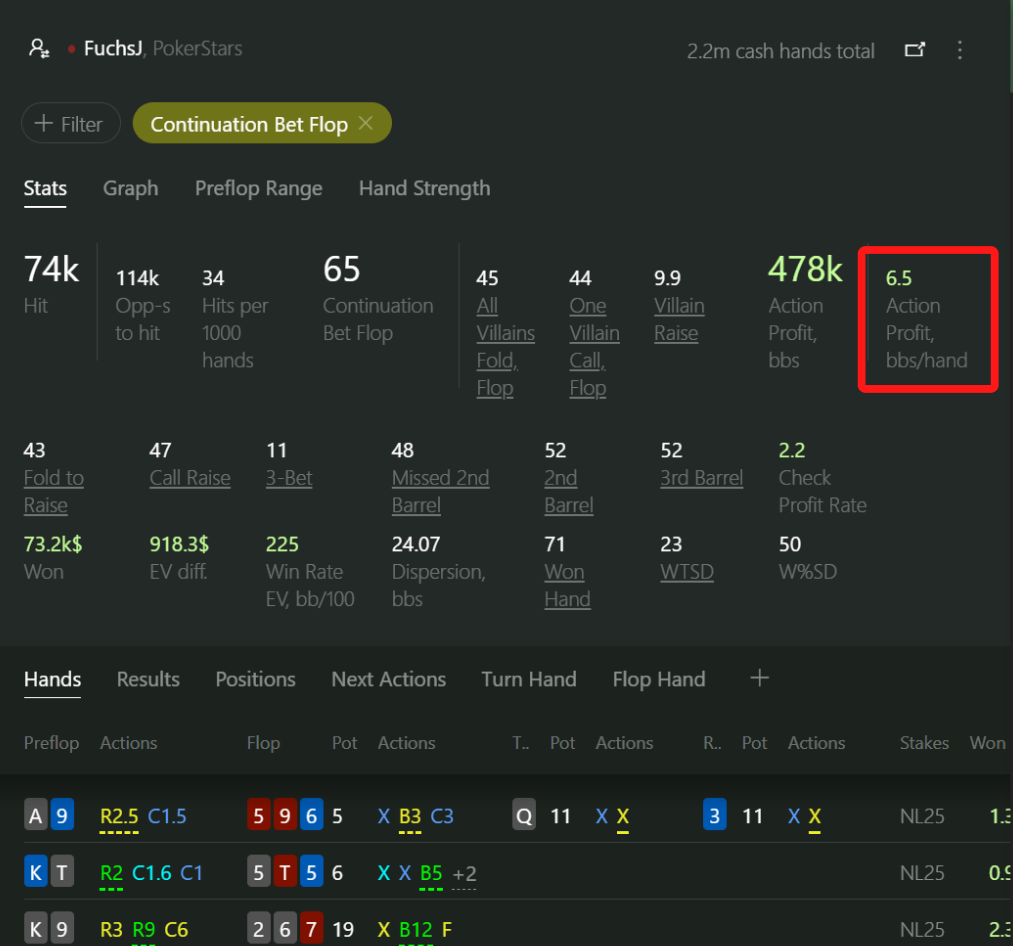
Notice in the report the stat Action Profit bbs / hand. It’s the only stat we are going to work with in this article.
It tells that every continuation bet brought me on average 6.5 big blinds. Looks like my c-bets (continuation bets) are quite profitable, I should keep making them.
But hold on. Of course, my bets are profitable when I have a strong hand like an overpair or a set. But what about my continuation bets when I'm bluffing with ace high, a draw, or even some random trash?
Are my continuation bluff bets profitable?
In this example, we are going to compare the profit of continuation bets with different hand values on the flop like top pair, draw, etc.
1. Press the “+” button to add the new report.
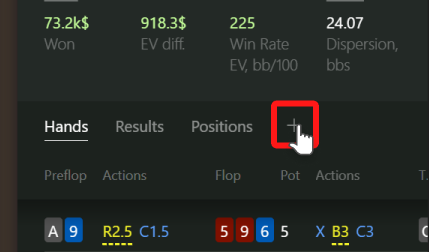
2. Select the Flop Hand report
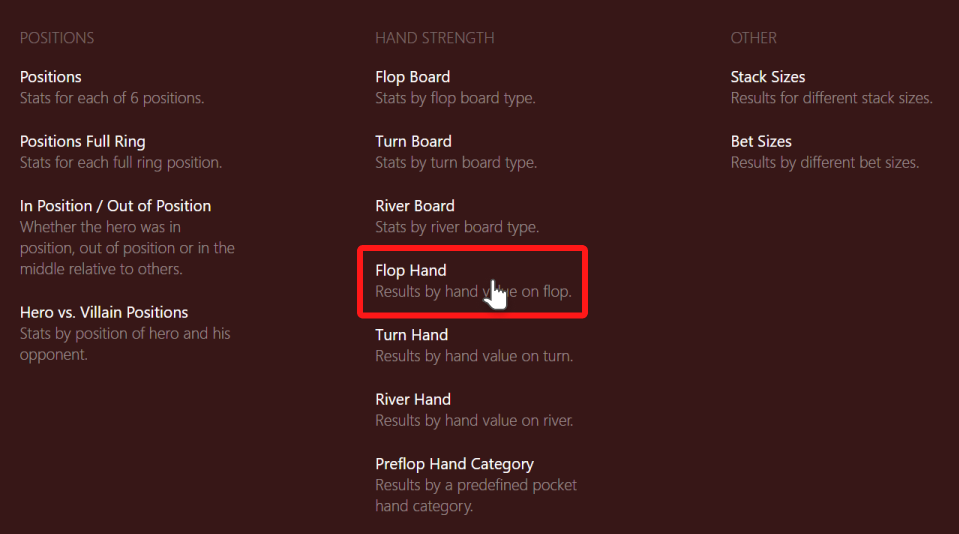
3. The report shows up.
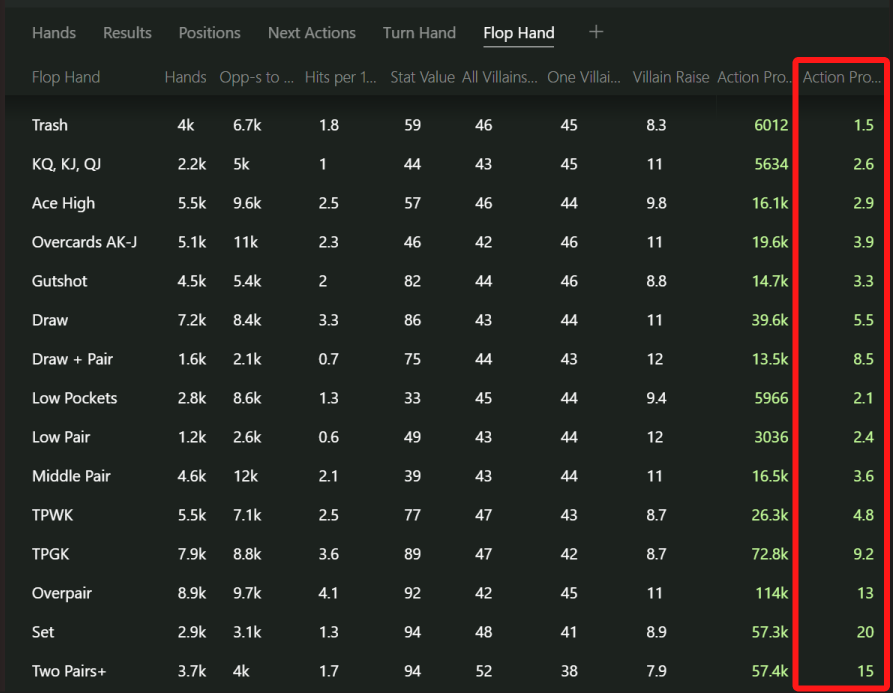
Notice the last column. It shows action profit of each hand category: from trash to sets.
All the values are positive. Sets give me an average of 20 big blinds. While c-bets with Ace High yield just 2.6 big blinds, they are still profitable. So far, so good.
Seems like I am doing well with my continuation bets. But wait—I'll show you that I'm not using the most profitable strategy for my continuation bets.
Compare profits between alternative actions
In the section above, I showed that my continuation bet is profitable, yielding an average of 6.5 big blinds. But is there a way to make even more? What if checking could be even more profitable? How do I know that betting is better than just checking with, for example, a top pair?
Let’s figure it out.
1. Pin the report.
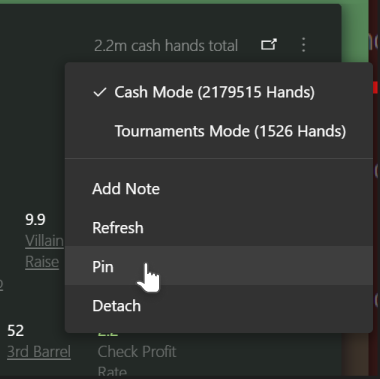
2. In the first report change the filter to Missed Continuation Bet.
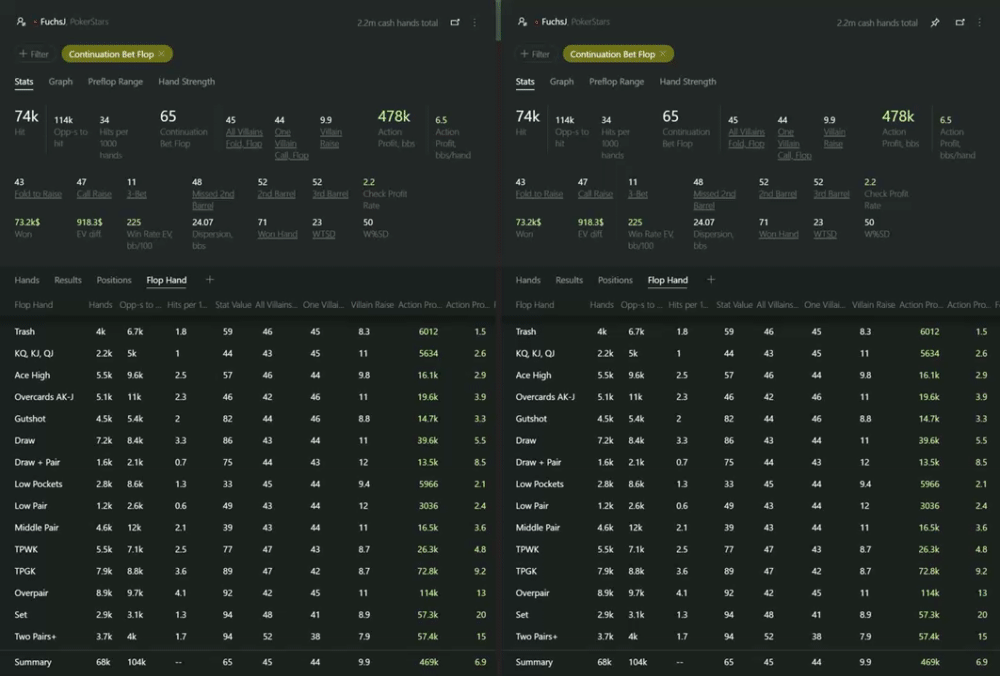
3. Compare the report side by side.
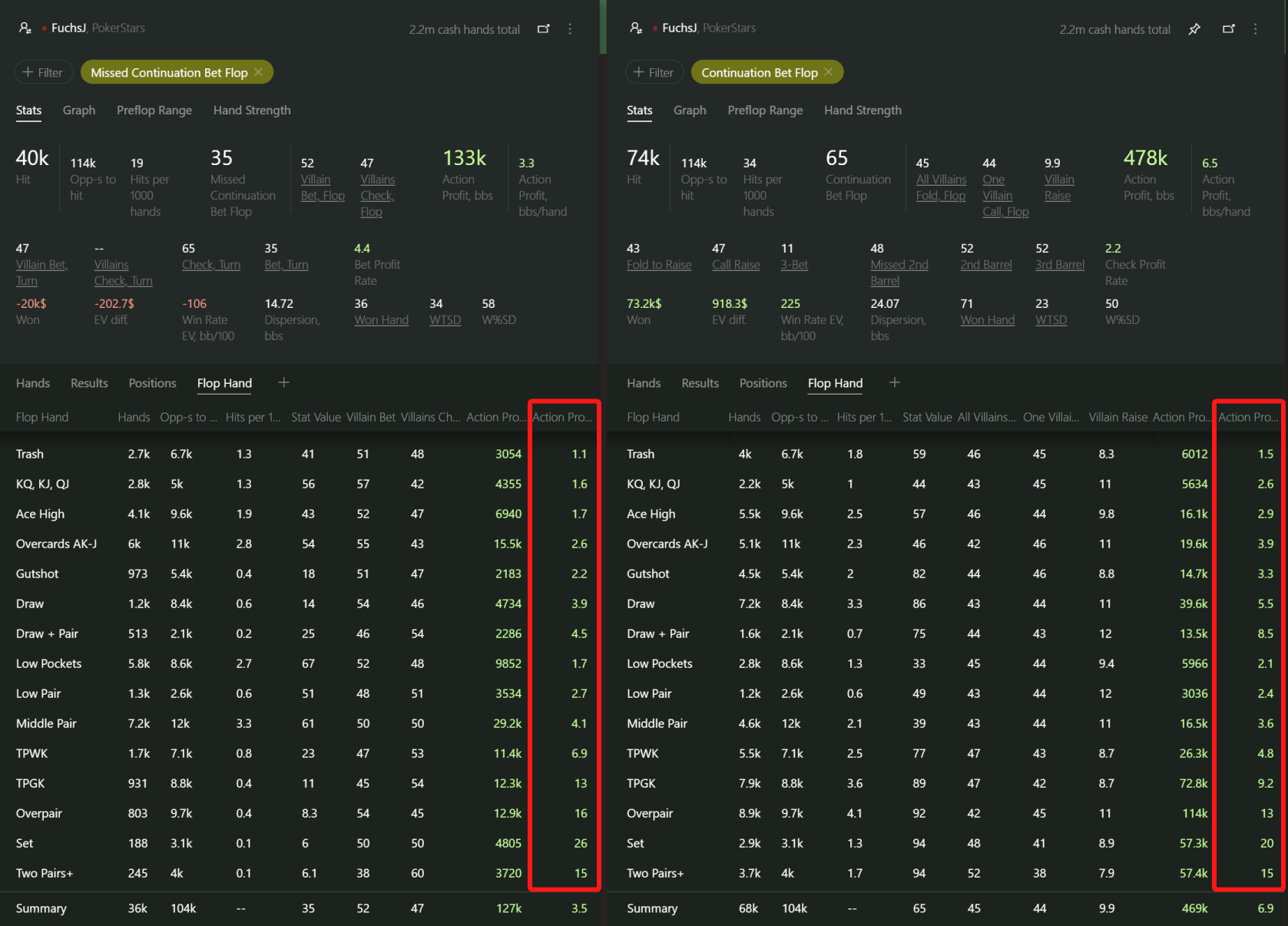
The report might look complex at first glance, with so many stats to consider. But we're interested only in the last column. It shows action profits for each category of hand value on the flop.
There are a few important insights in the report.
First. My action profit from a check is 3.3 big blinds, which is only half as much as the profit from bets, which stands at 6.5 big blinds. I should prefer betting over checking more often.

Second, take a look at the first six columns in the report.

They compare profits from betting and checking for every 'bluff' category, ranging from trash to draw. It seems like betting with a draw or an ace high is more profitable than checking. I should bluff more often.
Third, most surprisingly, checking with a value hand turned out to be more profitable than betting!

For example, every check with an overpair gives me 16 blinds, while betting with an overpair gives me just 13 blinds. Checking with an overpair is clearly more profitable I should slowplay my hands more often on the flop.
How is it that slowplaying works better? I didn't expect that!
Because slowplaying is an exploit that works at my stakes.
I aimed to play a balanced optimal strategy, often referred to as the GTO (Game Theory Optimal) strategy. Playing GTO, you can't slowplay strong hands and bluff with weak hands too frequently. However, the reality is that opponents at my stakes don't care whether I follow the GTO strategy or not.
For me, it turns out to be more profitable to deviate from the GTO and adopt a more exploitative playstyle.
By bluffing more with weak hands and slowplaying my stronger hands, I can take advantage of my opponents' lack of experience. They simply aren't skilled enough to recognize that I'm using an unbalanced but more exploitative strategy against them.










